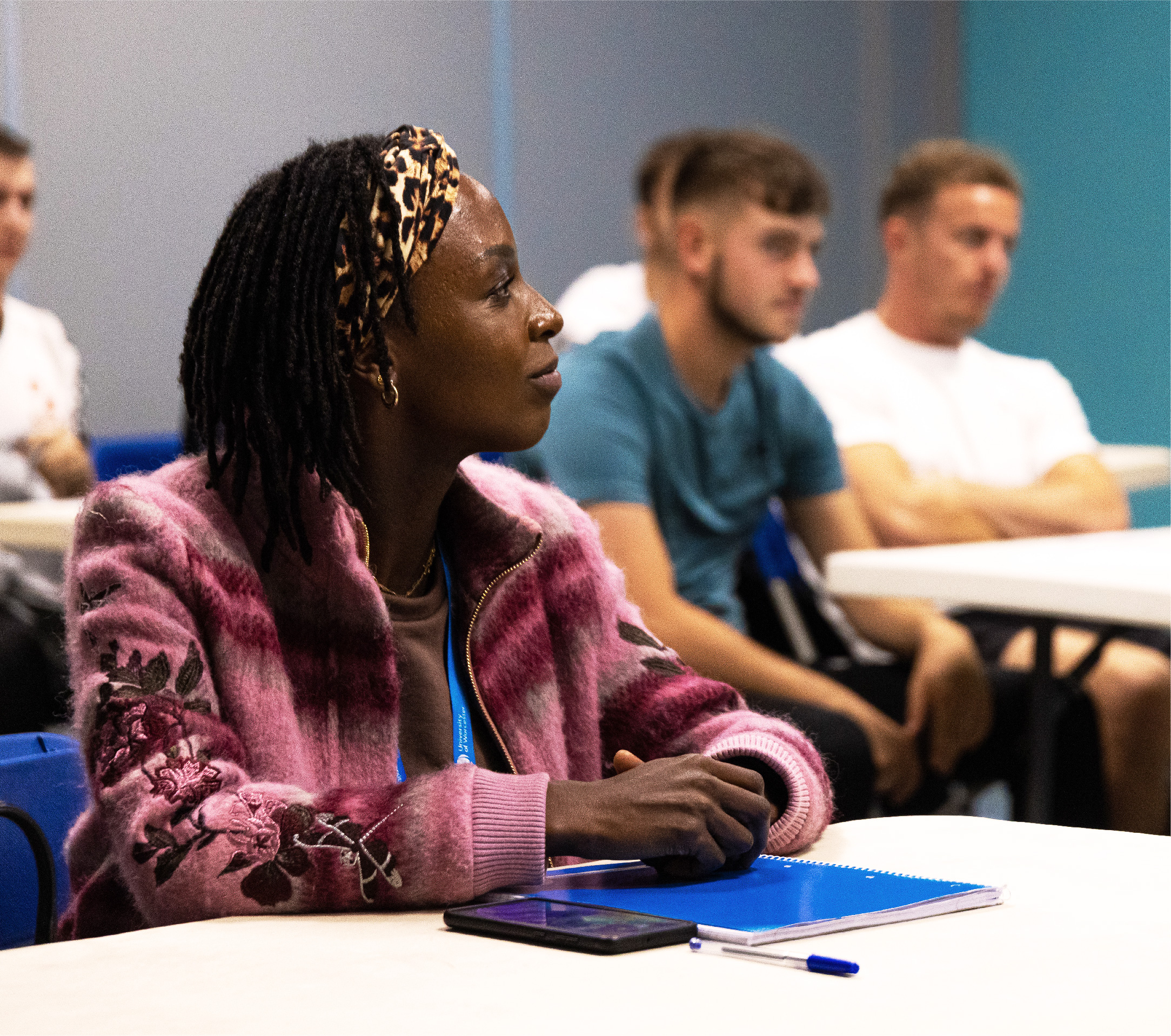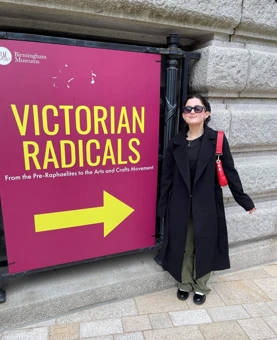Join a vibrant community of staff and students who enjoy focussing on crucial and fast-developing areas such as the impact of new technologies, environmental crises and health inequalities.
for Teaching Quality in the UK, within Sociology
for student satisfaction
University of the Year finalist
Recognised for our graduate success, we’re shortlisted for University of the Year in the Times Higher Education Awards 2025.
Overview
What shapes the world we live in and how do we influence it in return? On the University of Worcester sociology degree you’ll critically explore these big questions, examining how societies function, evolve and adapt. This course invites you to question assumptions, uncover hidden inequalities and imagine solutions to today’s most pressing social challenges.
From issues like gender, race and class to contemporary debates about the environment, technology and social justice, this degree tackles the complexities of modern life. You’ll gain a deep understanding of how power and inequality shape everyday experiences and global systems alike.
As you study, you’ll develop practical skills in research and analysis, exploring qualitative and quantitative methods to make sense of the world around you. You'll work closely with a supportive teaching team who bring a wealth of expertise and real-world insight to your learning.
This course is more than just an academic journey—it’s an opportunity to develop critical thinking, communication and problem-solving skills that prepare you for a meaningful career. Whether you aspire to make a difference in your community, influence policy, or lead in your chosen field, Sociology at Worcester provides the foundation to make it happen.
Our blog post 'What is Sociology?' highlights the exciting and original research done by our students.
"Best decision of my life so far was choosing to study Sociology at the University of Worcester. Thank you to the whole department for being so inspiring and caring and preparing me for the next challenge."
Course content
In your second and third year you can choose optional modules to match your interests and career ambitions.
We regularly review our courses to reflect the latest research and developments in the subject area, as well as feedback from students, employers and the wider sector. As a result, modules may change to ensure the course remains current and relevant.
Optional modules will run if enough students choose to study them. It is not guaranteed that all modules will be offered every year.
Careers
We help you plan for your future career from the first year, with our Sociology in Practice module. You’ll also gain practical experience through placements and hands-on projects, to ensure you graduate with real-world insights and a competitive edge.
This sociology degree could be the first step toward your career as a:
- Social researcher
- Community development worker
- Teacher
- Police Officer
- Civil servant
- Youth Worker
- Charity officer
- HR officer
- Journalist
- Marketing manager
- PR officer
If you do choose to become a teacher you can train to teach with a one-year Primary or Secondary PGCE at Worcester.
If you’d like to learn more about the study of sociology and the careers it can lead to, please read the British Sociological Association’s Discover Sociology leaflet.
Case studies
Course highlights
Teaching and assessment
Teaching will be delivered through a combination of guided lectures, independent study and one-to-one tutoring sessions.
There are no exams in sociology-coded modules, instead we focus on building your research and communication skills through essays, book reviews, case study analyses and presentations.
Teaching and assessment contents
In Sociology you will be taught through a combination of interactive lectures, student-led seminars, and workshops which focus on fostering independent research, assessment writing skills, graduate employability, and lifelong learning. The Sociology team places specific emphasis on providing close tutor support in encouraging you to become an independent learner.
Meet the team
Entry requirements
UCAS tariff points required: 104
| Qualification | Grade |
|---|---|
| A-level | BCC |
| BTEC National Extended Diploma | DMM |
| T-level | Merit |
We do accept Access to HE Diplomas and other qualifications which may not exactly match the combinations above. Work out your estimated points with the UCAS tariff calculator.
Any questions?
If you have any questions about entry requirements, please call our Admissions Office on 01905 855111 or email admissions@worc.ac.uk.
Fees
Fees contents
UK and EU students
In 2026/27 the standard fee for full-time home and EU undergraduate students on BA/BSc/LLB degrees and FdA/FdSc degrees is £9,790 per year.
Tuition fees are reviewed annually and may increase each year for both new and continuing students.
For more details on course fees, please visit our course fees page.
International students
In 2026/27 the standard tuition fee for full-time international students enrolling on BA/BSc/LLB degrees and FdA/FdSc degrees is £17,200 per year.
Tuition fees are reviewed annually and may increase each year for both new and continuing students.
For more details on course fees, please visit our course fees page.
How to apply
How to apply contents
Applying through UCAS
UCAS is the central organisation through which applications are processed for full-time undergraduate courses in the UK.
Read our how to apply pages for more information on the application process, or if you’d like to apply for part-time study.
Sociology BA (Hons) - L300
Contact
If you have any questions, please get in touch. We're here to help you every step of the way.

Admissions Office
admissions@worc.ac.uk01905 855111More to explore
Open Days
Visiting us is the best way to get a feel for student life at the University of Worcester.

The City of Worcester
Worcester is a welcoming university city with great transport links and plenty of student parking.

Accommodation
Benefit from our accommodation guarantee. We have rooms on campus to suit every budget including en-suite options.

















